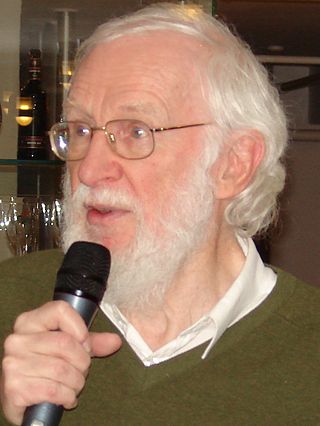Related Research Articles

Copenhagen is the capital and most populous city of Denmark, with a population of 1.4 million in the urban area. The city is situated on the islands of Zealand and Amager, separated from Malmö, Sweden, by the Øresund strait. The Øresund Bridge connects the two cities by rail and road.

Ole Christensen Rømer was a Danish astronomer who, in 1676, first demonstrated that light travels at a finite speed. Rømer also invented the modern thermometer showing the temperature between two fixed points, namely the points at which water respectively boils and freezes.

Scandinavia is a subregion of Northern Europe, with strong historical, cultural, and linguistic ties between its constituent peoples. Scandinavia most commonly refers to Denmark, Norway, and Sweden. It can sometimes also refer to the Scandinavian Peninsula. In English usage, Scandinavia is sometimes used as a synonym for Nordic countries. Iceland and the Faroe Islands are sometimes included in Scandinavia for their ethnolinguistic relations with Sweden, Norway and Denmark. While Finland differs from other Nordic countries in this respect, some authors call it Scandinavian due to its economic and cultural similarities.

Peter Naur was a Danish computer science pioneer and 2005 Turing award winner. He is best remembered as a contributor, with John Backus, to the Backus–Naur form (BNF) notation used in describing the syntax for most programming languages. He also contributed to creating the language ALGOL 60.

The University of Copenhagen is a public research university in Copenhagen, Denmark. Founded in 1479, the University of Copenhagen is the second-oldest university in Scandinavia after Uppsala University.

James Gardner March was an American political scientist, sociologist, and economist. A professor at Stanford University in the Stanford Graduate School of Business and Stanford Graduate School of Education, he is best known for his research on organizations, his seminal work on A Behavioral Theory of the Firm, and the organizational decision making model known as the Garbage Can Model.

Copenhagen Business School often abbreviated and referred to as CBS, is a public university situated in Copenhagen, Denmark and is considered one of the most prestigious business schools in Western Europe and the world.

Scanian is an East Scandinavian language spoken in the province of Scania in southern Sweden.
Anders Hjorth Hald was a Danish statistician. He was a professor at the University of Copenhagen from 1960 to 1982. While a professor, he did research in industrial quality control and other areas, and also authored textbooks. After retirement, he made important contributions to the history of statistics.

Peter Vilhelm Glob, also known as P. V. Glob, was a Danish archaeologist.
Brian David Ripley FRSE is a British statistician. From 1990, he was professor of applied statistics at the University of Oxford and also a professorial fellow at St Peter's College. He retired August 2014 due to ill health.
Peter Kurrild-Klitgaard, is a Danish political scientist with a particular interest in public choice analysis and classical liberalism.
Bent Flyvbjerg is a Danish economic geographer. He is the Villum Kann Rasmussen Professor at the IT University of Copenhagen.
Thomas L. Thompson is an American-born Danish biblical scholar and theologian. He was professor of theology at the University of Copenhagen from 1993 to 2009. He currently lives in Denmark.

Peter Ludvig Panum was a Danish physiologist and pathologist born on the island of Bornholm in Rønne. He founded studies in exercise physiology at the University of Copenhagen. The Panum Institute in Copenhagen is named in his honor.
Peter Nedergaard is a Danish professor of political science who has been employed at the Department of Political Science at the University of Copenhagen since 2008. Peter Nedergaard is member of the Order of Dannebrog.
The phonology of Danish is similar to that of the other closely related Scandinavian languages, Swedish and Norwegian, but it also has distinct features setting it apart. For example, Danish has a suprasegmental feature known as stød which is a kind of laryngeal phonation that is used phonemically. It also exhibits extensive lenition of plosives, which is noticeably more common than in the neighboring languages. Because of these and a few other features, spoken Danish can be challenging for Norwegians and Swedes to understand without training, although they can easily read written Danish.
Peter Mark Pruzan is a Danish organizational theorist, management consultant, and Emeritus Professor of Systems Science at the Department of Management, Politics & Philosophy at the Copenhagen Business School (CBS) in Denmark. Pruzan is known for work on corporate governance and values-based leadership. He became a naturalized Danish citizen in 1973.

Andreas Kjær is a Danish physician-scientist and European Research Council (ERC) advanced grantee. He is professor at the University of Copenhagen and chief physician at Rigshospitalet, the National University Hospital of Denmark. He is board certified in Nuclear Medicine and his research is focused on molecular imaging with PET and PET/MRI and targeted radionuclide therapies (theranostics) in cancer. His achievements include development of several new PET tracers that have reached first-in-human clinical use. He has published more than 400 peer-review articles, filed 10 patents, supervised more than 40 PhD students and received numerous prestigious scientific awards over the years. He is a member of the Danish Academy of Technical Sciences
The Scandinavian Journal of Statistics is a quarterly peer-reviewed scientific journal of statistics. It was established in 1974 by four Scandinavian statistical learned societies. It is published by John Wiley & Sons and the editors-in-chief are Sangita Kulathinal, Jaakko Peltonen and Mikko J. Sillanpää. According to the Journal Citation Reports, the journal has a 2021 impact factor of 1.040, ranking it 97th out of 125 journals in the category "Statistics & Probability".
References
- ↑ Boye, Magnus (2018-08-13). "Dansk professor i R's Core Team: Vi har et foryngelsesproblem". Version2 (in Danish). Retrieved 2020-11-02.
- ↑ "Peter Dalgaard". CBS – Copenhagen Business School. 2020-07-09. Retrieved 2020-11-02.
- ↑ "Peter Dalgaard". Department of Public Health, University of Copenhagen . Retrieved 2020-11-02.
- ↑ "Scandinavian Journal of Statistics 50th Anniversary Special Issue".
